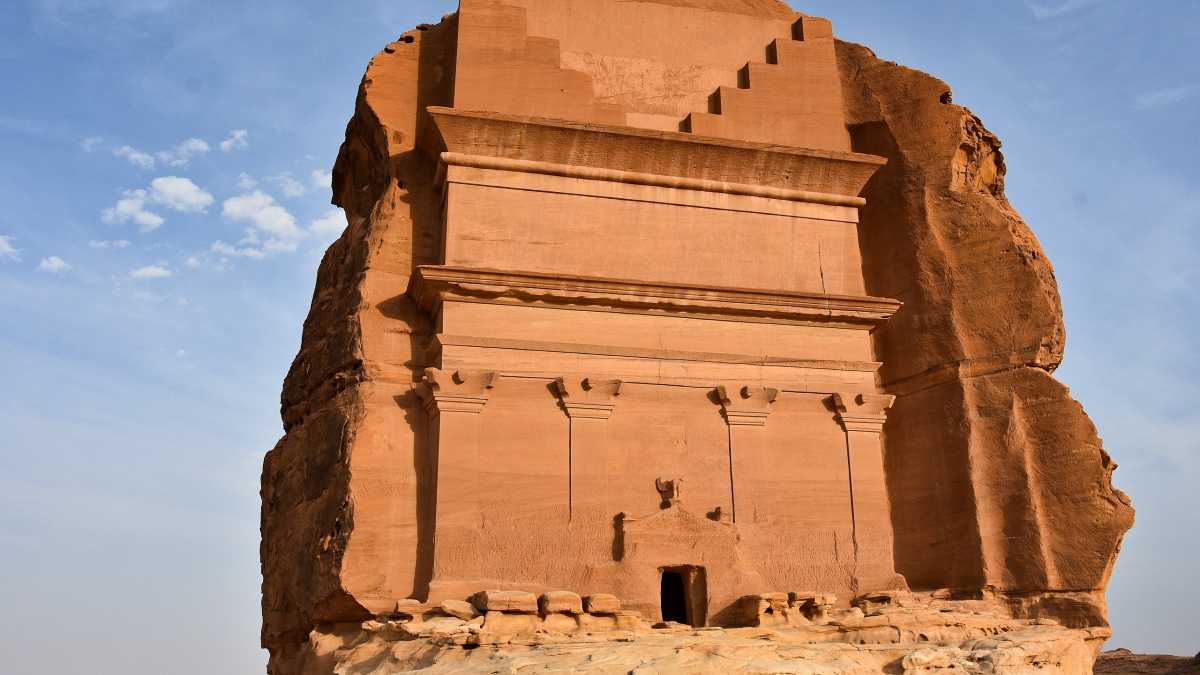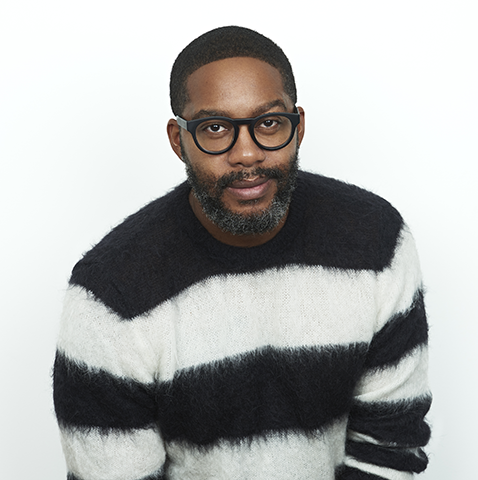ASU professor joins Nobel laureates, world leaders at Hegra Conference

Mitchell Jackson was in Saudi Arabia the first week of June for the Hegra Conference, a three-day series of panel discussions and town halls that featured political leaders and 35 Nobel laureates, with the goal to “save humanity.”
There was just one problem. His clothes didn’t arrive with him.
“My luggage was lost on the way,” said Jackson, a Pulitzer Prize winner for feature writing and the John O. Whiteman Dean’s Distinguished Professor in the Department of English at Arizona State University. “I was in flip flops and travel gear for three days.”
Wardrobe issues aside, Jackson said his experience at the Hegra Conference of Nobel Laureates and Friends, whose theme was “New Openings: Decisive Moments for a Decisive Decade,” was time well spent, not only for the dialogue about issues like education, diversity, leadership, affordable health care and wealth gaps, but the relationships that grew out of the conference.
Among the attendees were former Polish President Lech Walesa, Guatemalan activist Rigoberta Menchu-Tum, Pulitzer Prize-winning journalists Michael Moss and Jeff Gottlieb, and Dominique Langevin, the research director at Europe’s largest fundamental science agency.
Mitchell Jackson
“There was a Nobel Laureate from India that gave me his book and said, ‘Let’s stay in touch,’” Jackson said. “I met a young guy who was in the Liberian government, and he said, ‘Let’s stay in contact.’
“It’s one thing when you go to a conference, and you see someone on stage and then they come off and you don’t see them again. It’s another thing when you ride a bus with them, have dinner with them or go to a reception together. To me, that’s the rich part; the conversations that came about.
“I spent an hour listening to this Nobel laureate from MIT who’s an economist, and he’s explaining to me what was happening with inflation. And I just wouldn’t have that conversation otherwise.”
Jackson moderated a panel titled “The Inclusion Imperative: Closing the Diversity Gap.” Among those in attendance were Felipe Calderon, the former president of Mexico, and Nobel Peace laureates Menchu-Tum, Leymah Gbowee and Kailash Satyarthi.
Some of the topics discussed were: the need to promote a more diverse workplace; whether Confederate monuments should be removed; the paucity of women in science; the language used in reference to people with disabilities; and the lack of diversity in American schools.
Jackson noted that while 50% of U.S. schoolchildren are considered non-white, 80% of the teachers are white. Jackson asked the panel if the "leaky pipeline" to diversity in schools can be fixed with higher pay, re-imagining traditional training or supporting programs for students of color.
"(We) expressed how multi-faceted the idea of diversity is," Jackson said. "We often think in terms of race, gender and ethnicity only, but there's economic diversity, whether someone is able-bodied or not, etc. I think we conveyed how this issue expresess itself across cultures. ... We all agreed that we must be champions in our own fields."
Jackson also spoke at a town hall on the final day of the conference. He said as he rose to speak, he was thinking about Jamal Khashoggi, a Saudi dissident and columnist for the Washington Post who was assassinated by agents of the Saudi government in 2018.
“I said, ‘We’ve been talking a lot about science, and I think that’s important. But I don’t think we should leave out the storytellers. We’ve been using words like 'heritage' and 'culture,' and all of those things are a story. This whole conference has been about our shared values and what do we value. And I think value is always a story. And I think it’s really important that we encourage and protect our storytellers, even if that means we are critiquing power.’
“And that was basically the last word of the whole conference.
“So what will come out of this? I don’t know, but for me, the fact that I got to say in front of the king (of Saudi Arabia) that you need to protect your storytellers, even if it means them critiquing you, that was worth the trip for me.”
Top photo: Mada’in Salih (Hegra) site in Saudia Arabia. Image courtesy Sammy Six/Wikimedia Commons
More Arts, humanities and education

ASU professor's project helps students learn complex topics
One of Arizona State University’s top professors is using her signature research project to improve how college students learn science, technology, engineering, math and medicine.Micki Chi, who is a…

Award-winning playwright shares her scriptwriting process with ASU students
Actions speak louder than words. That’s why award-winning playwright Y York is workshopping her latest play, "Becoming Awesome," with actors at Arizona State University this week. “I want…

Exceeding great expectations in downtown Mesa
Anyone visiting downtown Mesa over the past couple of years has a lot to rave about: The bevy of restaurants, unique local shops, entertainment venues and inviting spaces that beg for attention from…


